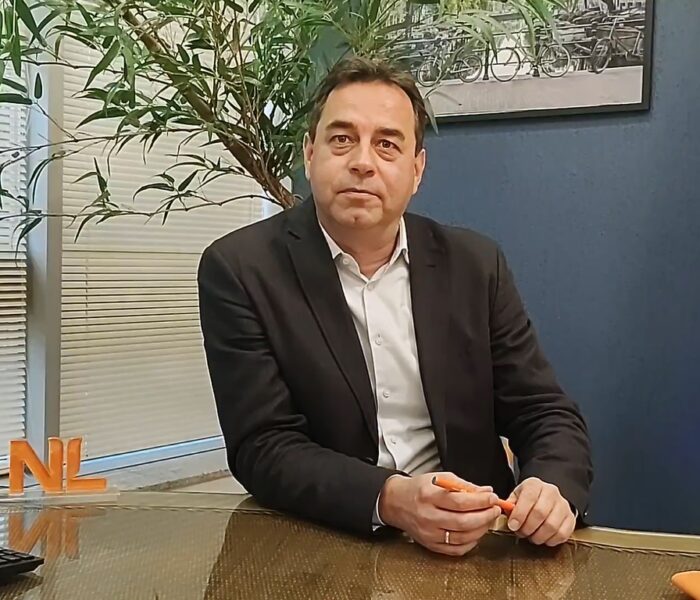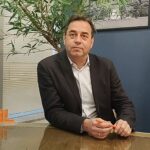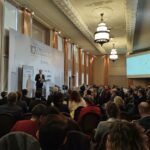Universities that work to meet the 17 Sustainable Development Goals (SDGs) of the United Nations (UN) have made important social, economic and environmental contributions. This month, when the Global SDG Day is celebrated, on September 25, NBSO Porto Alegre will address some important initiatives in the South of Brazil, its operational area. Among those universities we would like to highlight the actions taken by the Federal University of Santa Maria (UFSM), a partner in knowledge and researches exchange with the Dutch university of Wageningen.
Located in the central region of the state of Rio Grande do Sul, UFSM has been standing out in global efforts to meet the goals of sustainable development by 2030. Check out the details in the interview with Professor PhD. Rudiney Soares Pereira, coordinator of Articulation and Promotion of Extension at the Dean of Extension at UFSM.
How did happen the engagement of Federal University of Santa Maria to start up the SDGs process?
The work itself started in 2019, but the university management strategic decision was taken in 2018, when I was assigned to participate in the SDG Brazil Network, which brought together universities from different regions of the country, as well as research institutions and government agencies.
As a result of this participation UFSM mapped actions aligned with the SDGs and identified 11,800 actions. In 2020 and 2021, we improved this process and carried out training for the university professionals and applied an artificial intelligence system to verify if the action was aligned with the SDG criteria.
Nowadays, it is possible to access and identify everything that the university is doing within the 17 objectives defined by the UN. There is also a transversality of knowledge in the curriculum of the university courses, always looking at the objectives of the SDGs.
All projects and processes, including teaching, have as focus the 2030 Agenda. By 2025 we intended to have most of the SDGs objectives fully implemented and positioned at the university, and UFSM top ranked among the main national and international institutions. We will also start participating in the commissions that will think about the next agenda for 2050.
UFSM recently stood out in the international ranking in Goal 2 of the SDG, which addresses Zero Hunger and Sustainable Agriculture. How is this work going so far?
Among the 17 SDGs, the university had the highest evaluation in the Objective 2 – Zero Hunger and Sustainable Agriculture, ranking 52nd position in the world and 4th in Brazil. This objective is historically related to the identity of our university.
UFSM was founded in the rural region of Brazil, strongly focused on agribusiness. Therefore, our teaching, research and extension actions have the hallmark of food production.
We have research in this area that are national and international references. Much of the results come from dedication and development in food technology. We seek to produce nutritious and low-cost food. I believe that may have been the expression of SDG 2 in our research.
We have postgraduate courses in precision agriculture, for example, which are a reference in Brazil. In this area, the partnership with the Netherlands has been fundamental.
Within this process, I highlight the work of our professor Telmo Jorge Amado, a reference in precision agriculture, who has developed a solid research in the region of Não-Me-Toque, where the genetic matrix of the Netherlands is found in the population. The region’s own agri industries and the application of precision agriculture has close connections with the Netherlands.
In fact, UFSM has also been standing out in Goal 17 of the SDG, which emphasizes Partnerships and Means of Implementation. How has the university been dealing with this objective?
In the objective 17, UFSM went from 28.7 points in 2021, to 65.7 in 2022, ranking the 11th position in Brazil. The evaluation that leads to this index considers teaching, research and extension activities aimed at education and dissemination of the SDGs, as well as the strengthening of partnerships and means of implementing the Goals.
Partnerships are fundamental for the advancement of UFSM, its researchers and the community where the university is inserted. The Netherlands, for example, is a global reference in development of precision agriculture, an area that our university has always been very connected to.
In 2022, PhD Corné Kempenaar – professor and researcher from Wageningen University Research, visited UFSM. There is the possibility of strengthening even more the partnership between the two institutions in precision agriculture, especially in soil management.
Regarding the SDGs, which are the similarities and differences of UFSM compared to European universities?
European education has always brought great examples to our growth process. At the university, we have a Secretariat for International Affairs that provides important support to strengthen international relations.
Our perspective is to expand partnerships with external institutions, exchange knowledge and learn from the experiences of other countries. This effort includes the Kingdom of the Netherlands, a country that we already have agreements and ongoing projects. Germany is also another country where we have important academic partnerships.
How has governance been carried out to place the SDGs objectives at the center of the university’s priorities?
The goals of each of the SDGs objectives are connected with the institutional development plan, which is a long-term plan, around 10 years, where we define the goals and scores we want to achieve.
We looked at the 17 sustainable development goals and the 169 targets, assessed how we should link them to our development plan, and created a follow-up matrix. Everything adapted to the reality of the region, to the state of Rio Grande do Sul itself and to Brazil.
The methodology and management begin by capturing the needs of the community through the Permanent Regional Forum. In this Forum we listen to the community and transform it into a demand to be studied in order to be met.
Then we prepare special public calls for fundraising and project execution. All this is connected with our institutional development plan. By aligning this methodology and governance, we know what can happen in terms of progress or setbacks from the perspective of the 17 SDGs goals.
When managers think about regional development today, they look at the matrix that we have structured to analyze connections with the 2030 Agenda. This allows expanding knowledge, serving society and better managing intellectual, financial and infrastructure resources.







